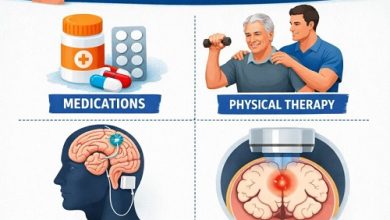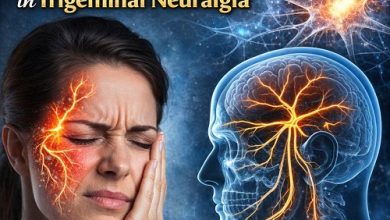A Cardiologist Explains How to Tell If Your Heart Is Aging Too Fast, and 4 Tips to Keep It Young

Your heart is more than just a muscle—it’s the core of your life force, tirelessly pumping blood to every part of your body. But like every part of you, it ages. The big question is: is your heart aging faster than it should? According to leading cardiologists, premature heart aging is more common than people think—and often goes unnoticed until serious issues arise.
How to recognise the signs of accelerated heart aging, what causes it, and most importantly, how you can keep your heart feeling—and functioning—young for years to come.
Understanding Heart Aging
Heart aging doesn’t just refer to wrinkles on the surface or feeling a little tired. It’s about real, structural, and functional changes in the heart and blood vessels over time. With age, the heart tends to:
- Stiffen and become less flexible
- Thicken in the walls of the heart muscle
- Lose some of its pumping efficiency
- Experience stiffening of arteries, making blood flow harder
Normally, these changes happen gradually. But due to lifestyle, genetics, and certain risk factors, the heart can age prematurely—making a 40-year-old’s heart resemble that of a 70-year-old.
Dr. Sara Malik, a consultant cardiologist based in London, explains:
“It’s not your age on the calendar that matters most—it’s your cardiovascular age. And we now have ways of measuring it.”
How to Tell If Your Heart Is Aging Too Fast
You don’t need to wait for a heart attack to know something’s wrong. There are early indicators that your heart is aging faster than it should. Some are subtle, while others are more direct.
1. High Blood Pressure
One of the earliest signs of an aging cardiovascular system is consistently elevated blood pressure. When arteries stiffen, the heart must work harder to pump blood, resulting in hypertension.
Normal range: Less than 120/80 mm Hg
Warning zone: Over 130/80 mm Hg consistently
2. Reduced Exercise Tolerance
Are you winded after walking up one flight of stairs? That might not just be poor fitness—it could be your heart struggling to deliver oxygen-rich blood efficiently. A youthful heart responds well to physical stress; an aging one struggles.
3. Shortness of Breath or Chest Discomfort
Even if mild, unexplained breathlessness or chest tightness during everyday tasks could suggest heart inefficiency. Many people dismiss these signs until they worsen.
4. Erectile Dysfunction or Poor Circulation
Reduced blood flow—whether it’s to the extremities or reproductive organs—is a red flag. Men, in particular, may notice ED years before heart disease is diagnosed.
5. Elevated Resting Heart Rate
A high resting heart rate (above 80 BPM) over time may reflect increased cardiovascular workload and stress. A healthy resting rate for adults is typically between 60–70 BPM.
6. Poor Sleep Quality
Interrupted sleep or untreated sleep apnoea can put immense pressure on the heart. Over time, this leads to irregular rhythms and high blood pressure.
7. Family History and Lifestyle Factors
If you smoke, are overweight, lead a sedentary lifestyle, or have a family history of early heart disease, these factors increase the likelihood that your heart is aging prematurely.
Tests That Can Reveal Cardiovascular Age
Your biological age and your heart’s age might not match. Several clinical tests help assess cardiovascular health:
- Coronary artery calcium (CAC) score – detects calcium deposits in arteries, indicating atherosclerosis.
- Echocardiogram – evaluates heart structure and function.
- Carotid artery ultrasound – assesses blood flow and plaque in arteries.
- VO₂ max testing – measures your heart’s ability to deliver oxygen during exercise.
- Pulse wave velocity – determines arterial stiffness.
Dr. Malik points out:
“Even without symptoms, these tests can flag concerns early—before heart disease strikes. Prevention truly is the best cure.”
Why the Heart Ages Faster Than It Should
Several modern lifestyle habits and environmental factors are fast-tracking heart aging in younger adults. Here are the primary culprits:
1. Chronic Stress
Prolonged stress elevates cortisol and adrenaline, which overwork the heart and lead to hypertension, arrhythmias, and inflammation.
2. Sedentary Lifestyle
Sitting for long hours slows blood circulation, increases cholesterol, and encourages weight gain—setting the stage for heart trouble.
3. Poor Diet
High consumption of processed foods, saturated fats, added sugars, and sodium accelerates arterial aging and plaque buildup.
4. Lack of Sleep
Inadequate or irregular sleep disrupts the circadian rhythm and raises blood pressure, inflammation, and heart rate variability.
5. Smoking and Alcohol
These accelerate oxidative stress and inflammation in the blood vessels, impairing their flexibility and structure.
6. Unchecked Medical Conditions
Conditions like Type 2 diabetes, obesity, high cholesterol, and metabolic syndrome directly contribute to cardiovascular aging.
4 Science-Backed Tips to Keep Your Heart Young
The good news? Even if your heart is showing signs of premature aging, many of the effects are reversible or at least manageable with simple, consistent changes.
1. Move Every Day – Even in Small Ways
You don’t need to run marathons. Just move more.
Why it works:
Exercise improves blood flow, lowers blood pressure, reduces inflammation, and increases heart muscle strength. Even 30 minutes of moderate movement (like brisk walking or cycling) five times a week can reduce cardiovascular disease risk by up to 30%.
Pro tip:
Incorporate mini bursts of activity—take stairs, walk during phone calls, or do desk stretches.
2. Adopt a Heart-Healthy Diet (That’s Actually Tasty)
A youthful heart thrives on anti-inflammatory, nutrient-dense food.
Best choices:
- Fatty fish (salmon, sardines, mackerel) for omega-3s
- Leafy greens and colourful vegetables for antioxidants
- Whole grains like oats and barley
- Berries, avocados, nuts, and seeds
- Olive oil over butter
Limit:
- Processed meats, refined sugars, excess salt, and fried foods
Try this:
The Mediterranean diet is repeatedly rated as the best for heart health.
3. Prioritise Rest and Manage Stress
Your heart needs recovery time—both physical and emotional.
How to do it:
- Practice mindfulness, meditation, or breathing techniques
- Stick to regular sleep patterns (aim for 7–9 hours)
- Reduce screen time before bed
- Limit caffeine late in the day
Extra tip:
Laughter, social connection, and spending time outdoors reduce cortisol and improve heart rate variability.
4. Monitor Key Numbers and Get Regular Check-Ups
Being proactive with your health is key to longevity.
Track these regularly:
- Blood pressure
- Resting heart rate
- Cholesterol levels (HDL, LDL, Triglycerides)
- Blood sugar or A1C (especially if diabetic or prediabetic)
- Waist circumference and BMI
Don’t ignore symptoms. Mild fatigue, dizziness, or palpitations should never be brushed off. When caught early, cardiovascular issues are much easier to treat.
Final Thoughts: You Have More Control Than You Think
Heart disease remains the leading cause of death worldwide. But it’s not inevitable. The majority of risk factors are lifestyle-related—and therefore within your control.
Your heart isn’t just a machine; it’s a reflection of how you live. Every bite, every step, every breath, and every night’s sleep adds up. By tuning in to early warning signs and making small, lasting changes, you can extend not just your lifespan, but your healthspan—the number of years your heart stays strong and resilient.




